Thoughts on Supporting the New Core Curriculum
By Kathy Boyd, director of library services
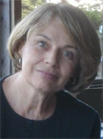 Recent research has confirmed that today’s incoming college students lack sufficient skills to locate, evaluate and synthesize the information needed to be successful in their learning pursuits and subsequent careers. The studies thus far conducted by Project Information Literacy, described in the article below, point to the need for colleges to help students acquire and strengthen those information literacy skills which are needed to succeed in the digital world. The development of these skills begins during the early education and high school years, and continues throughout college and beyond.
Recent research has confirmed that today’s incoming college students lack sufficient skills to locate, evaluate and synthesize the information needed to be successful in their learning pursuits and subsequent careers. The studies thus far conducted by Project Information Literacy, described in the article below, point to the need for colleges to help students acquire and strengthen those information literacy skills which are needed to succeed in the digital world. The development of these skills begins during the early education and high school years, and continues throughout college and beyond.
As the university begins the process of revising its Core Curriculum, the library hopes to play a vital role in working with faculty to develop a curriculum that not only integrates these necessary lifelong skills into the common core curriculum, but continues to deepen the skills of students as they progress through their majors.
Project Information Literacy Releases New Findings
Project Information Literacy, working with the University of Washington's Information School, is in the midst of a multi-year large-scale research study about the information seeking habits of college students. It just released exciting and troubling results from the first phase, "How Freshmen Conduct Course Research Once They Enter College." The report’s findings have curriculum pedagogical implications for colleges and high schools nationwide [View report (pdf)].
Project Information Literacy's report found that incoming students are unprepared for college-level research. They are unfamiliar with the research resources and services academic libraries offer, they have difficulty determining how to create effective searches and find appropriate keywords, they have trouble sorting through results and finding pertinent books and articles, and they have difficulty synthesizing the materials for use in their writing.
"Many freshmen, who assumed everything they needed to know was just a Google search away, soon discovered they were unprepared to deal with the enormous amount of information they were expected to find and process for college research assignments. This transition from completing high school assignments to doing college-level research is one of the most formidable challenges that incoming freshmen face." (p 2)
The authors make recommendations, including urging librarians to become involved in curriculum development and first-year experience programs, and embedding librarians in classes. It also has recommendations for composition teachers and the way writing and research is taught in courses across all disciplines. See a short video summarizing the study’s findings here:
https://www.youtube.com/watch?v=BWNGZUa952A&feature=youtu.be
The Oxford English Dictionary is Back
 By popular demand, the library's online access to the Oxford English Dictionary (OED) is back! Oxford Univerity Press calls the OED "the definitive historical record of the English language," and it is fascinating to peruse. An Oxford English Dictionary researcher found this Ralph Waldo Emerson quote to describe her work: By popular demand, the library's online access to the Oxford English Dictionary (OED) is back! Oxford Univerity Press calls the OED "the definitive historical record of the English language," and it is fascinating to peruse. An Oxford English Dictionary researcher found this Ralph Waldo Emerson quote to describe her work:
"For, though the origin of most of our words is forgotten, each word was at first a stroke of genius. The etymologist finds the deadest word to have been once a brilliant picture. Language is fossil poetry. Language is made up of images, or tropes, which now, in their secondary use, have long ceased to remind us of their poetic origin."
Of course, the OED is also useful to researchers in all fields. Imagine the context provided by answering the question, "when did the term 'email' first come into use?"
We were initially forced to cut the OED from our electronic resources collection because of lack of use and budget pressures, so we hope to see that people are using it more as we provisionally renew the library's subscription.
Library Happenings

 Long View from the Front Range: A Century of Avifaunal Change in Colorado
Long View from the Front Range: A Century of Avifaunal Change in Colorado
February 27, 4:00pm
Jim Chace, associate professor of biology and biomedical sciences, environmental studies
Public Interest Communication: Talking to the public about everything from global warming to the arts
March 20, 4:00pm
Joe Grady, Pell Center senior fellow for public policy
Tech Bytes Technology Series
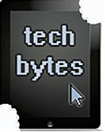 Join us at noon on Tuesdays for "Tech Bytes," short informational sessions where you can learn about some of the newest and best technologies! Join us at noon on Tuesdays for "Tech Bytes," short informational sessions where you can learn about some of the newest and best technologies!
The series starts on Feb. 11 and each session will last less than 40 minutes. No special technological skills are needed. The workshops are free and open to faculty, staff and students. We hope to see you there!
- Feb. 11 – Connect and Collaborate: Study Room 204 Technology allows for a new style of collaborative teaching and learning.
- Feb. 18 – Classroom Technology: What’s New, What’s Not – From a Little to a Lot.
- Feb. 25 – Just Pin It: Collecting and Organizing Digital Information Visually with Pinterest.
- Mar. 4 – Discover the Benefits of E-books.
- Mar. 18 – Print, Scan, Copy! Learn all that our Ricoh Multifunction machines have to offer.
- Mar. 25 – Search like A Google Ninja.
LibX Toolbar
 Did you know that the library has a Firefox plugin that allows you to search the library catalog from anywhere on the Web? The plug-in works with Firefox on both Mac and PCs and it’s free! Here are the instructions to install. We also have a video tutorial on YouTube.
Did you know that the library has a Firefox plugin that allows you to search the library catalog from anywhere on the Web? The plug-in works with Firefox on both Mac and PCs and it’s free! Here are the instructions to install. We also have a video tutorial on YouTube.
Pretty cool, huh?
We think so, too. What are you waiting for? Download it now!
Problems, comments, or questions? Contact Lori Barile, learning commons librarian at lori.barile@salve.edu or 401-341-2237.
|
Library Staff News
Christine Bagley
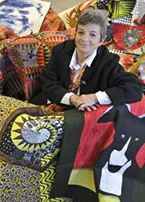 Christine Bagley, curriculum resources librarian, is retiring after 18 years of service. Chris started as circulation supervisor, then became the interlibrary loan librarian, and for the past 10 years has been in her current position. Faculty and staff are invited to a retirement reception for Chris on Wednesday, Feb. 26, from 3:00 to 4:00 p.m. in McKillop Library's Munroe Special Collections Room.
Julie Swierczek
We wish a fond farewell to Julie Swierczek, university archives & special collections librarian. Julie joined the staff six years ago as a cataloger, pursued her MLS and sought training in archives management. She became the university archivist in the fall of 2012. We wish her best of luck in her new position in Boston.
Research Assistance to Graduate Students
The McKillop Library is offering a series of Library Lessons on various research topics. In addition, students can meet individually with a librarian by scheduling an appointment online, sending us email, or stopping by the information desk. Drop in coffee hours with a librarian are available on the first Wednesday of each month from 5:30 to 6:30pm in McKillop 106. For more information on the type of assistance we offer, please see our Research Assistance for Graduate Students.
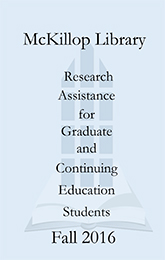
Library Display Space
The library is interested in displaying art, posters, and 3D objects in our new space on the main floor. If you are interested in using the space, please contact Lisa Kenyon at lisa.kenyon@salve.edu or 401-341-2278.

Criterion Collection on Blu-Ray
McKillop Library has been collecting Criterion Collection DVDs for years, amassing a nice array of classic and art house films. Recently, Criterion made the decision to only release films in dual format, with the DVD and Blu-Ray disc together. The library will be loaning these new releases with both formats in one case and you can choose which disc to view. If you have any questions please contact Lisa Underhill, lisa.underhill@salve.edu or 401-341-2290.
|
|
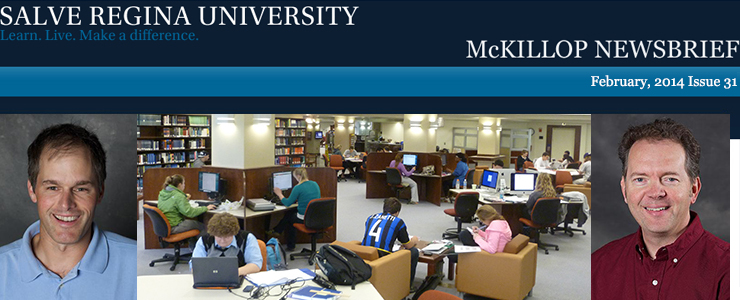
 Supporting the New Core Curriculum
Supporting the New Core Curriculum Project Information Literacy Releases New Findings
Project Information Literacy Releases New Findings The Oxford English Dictionary is Back!
The Oxford English Dictionary is Back! Library Happenings
Library Happenings
 Tech Bytes Technology Series
Tech Bytes Technology Series LibX Toolbar
LibX Toolbar Library Staff News
Library Staff News
 Research Assistance to Graduate Students
Research Assistance to Graduate Students
 Library Display Space
Library Display Space Criterion Collection on Blu-Ray
Criterion Collection on Blu-Ray Recent research has confirmed that today’s incoming college students lack sufficient skills to locate, evaluate and synthesize the information needed to be successful in their learning pursuits and subsequent careers. The studies thus far conducted by Project Information Literacy, described in the article below, point to the need for colleges to help students acquire and strengthen those information literacy skills which are needed to succeed in the digital world. The development of these skills begins during the early education and high school years, and continues throughout college and beyond.
Recent research has confirmed that today’s incoming college students lack sufficient skills to locate, evaluate and synthesize the information needed to be successful in their learning pursuits and subsequent careers. The studies thus far conducted by Project Information Literacy, described in the article below, point to the need for colleges to help students acquire and strengthen those information literacy skills which are needed to succeed in the digital world. The development of these skills begins during the early education and high school years, and continues throughout college and beyond.

 Long View from the Front Range: A Century of Avifaunal Change in Colorado
Long View from the Front Range: A Century of Avifaunal Change in Colorado






